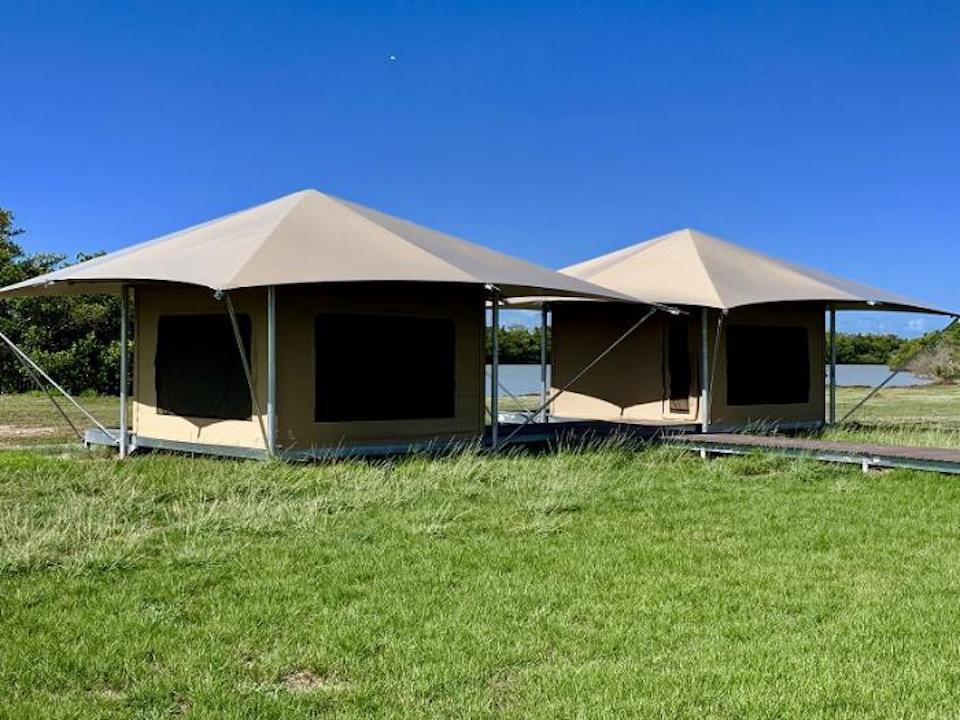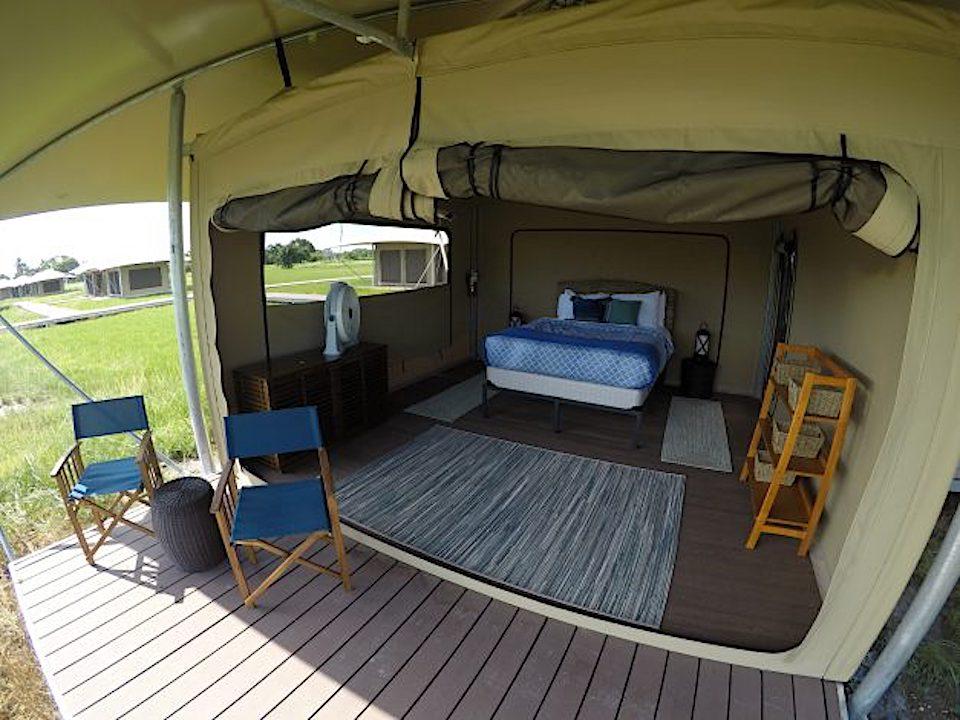
Eco-tents at Flamingo are set up as duplexes.
Every now and then, as we peruse park websites, we come across something that causes us to raise an eyebrow. For instance, at Everglades National Park the cost to sleep in a tent at Flamingo is $150 a night.
It's certainly a nice tent, complete with queen-sized bed, a fan to keep the air moving, and mosquito netting. But...$150 a night?
What do you think, travelers? Is this a good deal, or overpriced?
There hadn't been any visitor lodging at Flamingo since 2005, when hurricanes Katrina and Wilma inflicted heavy damage to the motel units and cottages there. In 2009, the facilities were razed. While park officials came up with a plan to replace the lodge, that 2010 lodging proposal with its $78 million price tag was deemed too expensive by then-Park Service Director Jon Jarvis, especially in light of the park's history with storms and the short occupancy season (summer is too buggy for most Everglades visitors).
Two years later, in 2012, the park experimented with "eco-tents" that could be used for nightly stays. The next year, 2013, the Park Service issued a prospectus for lodging at Flamingo that called for construction of 24 cottages and the purchase of 20 relatively large tents. The winning bidder would be required to pay for installation of the infrastructure to support it all.
In 2017, Guest Services, Inc., reached agreement with the Park Service to return lodging to Flamingo. The contract required construction of 24 cottages and 20 eco-tents by December 2019, but authorized a total of 40 cottages and 40 eco-tents. Now, the cottages have yet to appear, but the eco-tents are in place.

The eco-tents come complete with bed, fan, and mosquito netting.
The use of eco-tents is another novel aspect taken by the Park Service at Everglades. With a well-known history of hurricanes passing through the Flamingo area, having an inexpensive structure that can easily and quickly be dismantled and taken out of the path of a storm can reduce maintenance costs while providing a relatively low-end lodging option for visitors.
Back in 2012-2013 when the park experimented with the eco-tent approach, it worked with a somewhat Spartan-looking model designed by the University of Miami architecture program that could sleep four and came with a table and chairs as well as a picnic table and fire ring. The nightly cost? A mere $30. Restroom and shower facilities were a short walk away at the nearby campground.
Well, today, the restroom and shower facilities remain a short walk from the tents, but the $150 nightly fee does not exactly convey "low-end lodging," does it?
Here at the Traveler we're going to try and get some answers for how that price point was established. In the meantime, do you think that is a reasonable price?



Comments
FYI: I was looking into them recently and was shocked at the $150/night cost. I went back a week later and it was down to $75/night. Booked a night in April. I hope I'm the only one there. They look awfully close to one another!
Those tents don't look gator-proof to me. Seems like a long way to the toilets, with lots of python hiding spots under the boardwalks. How does one pee at night without filling the tent with bugs? You couldn't pay me $150 to stay a night there :o)
Do they serve chateaubriand, preceded by escargots and vichysoisse?
How is this equitable to people with lower incomes?
I'm a long time visitor to Flamingo in ENP. Last summer the tents were empty. Occupied this winter though as the mosquitos abate and temps cool. A couple of things you should know. There are no restaurants and the marine store has very limited food But does sell ice so bring food in a cooler. Oh, the gators won't bother you and in my 45 years of fishing the area, I've never seen a python.
My husband and I used to live in the everglades in the winter months and I would not be in a tent at night there for no amount of money little on 150 dollars a night. Not when you can go to drive thru spots for a lot cheaper. Sorry but no.
I've been wondering what might have prompted anyone in a position of authority within the NPS to think supporting the deployment of these tents, especially at the rate this concessionaire is trying to charge for them, was a good idea. So, I took a look at who's on the Board and in the management of Guest Services Incorporated. It's pretty clear from which side of the political street they consistently come and I'm still haunted by the "wretched hive of scum and villainy" metaphor recently being used in connection with the party still backing the current administration. I'm wondering if it's time for someone to ask whether the roles of the people involved in this tent decision, both at Guest Services Incorporated and within the NPS, might need to be reviewed or is it still too soon for that question?
Too high for minimal comfort & only room for one bed. I might stretch to $75/nightly for a multi-day discount, or $100 for a single night.